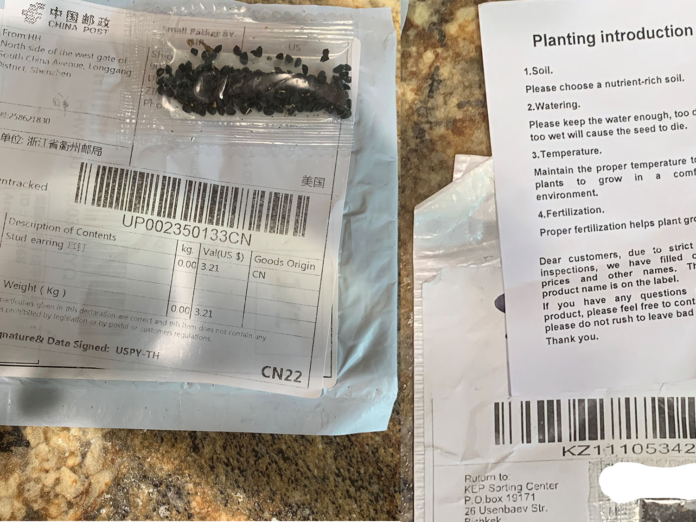Government agencies have released information on unsolicited seeds people have received in 22 U.S. states, including Minnesota.
Seeds in mislabeled packages appearing to be from China have been received by people in the U.S. and abroad. Recently, several government agencies have worked together to identify the seeds as cosmos, radish, mung bean, juniper, basil, cucurbit, and zinnia. While these are not invasive species, people are advised not to plant them, as they may carry hidden diseases.
“If you have planted the seeds you received, please destroy any plants that have germinated. While plants and soil are usually prohibited from trash collection, in this unusual situation, pull up the plants, double bag them and the surrounding soil, and dispose of everything in the trash. Do not compost the seeds, plants, or soil. Please notify the MDA if you have disposed of any seeds or plants through our contact form,” said the Minnesota Department of Agriculture’s statement on the issue.
As prominently reported, the seeds have been coming inside small packages with Chinese shipping addresses labeled “jewelry” or “wire connector.”
The packets come with instructions in English on how to plant the seeds, with the mislabeling as a way to get through customs. According to the USDA, the packages have been found in 22 U.S. states and have also been reported in Canada, Australia, and Europe.
The ongoing investigation involves agencies such as the USDA, the Department of Homeland Security, and various federal agencies and state departments. The USDA has announced that it believes the seeds are part of a “brushing scam” and doesn’t have any reason to believe otherwise.
A brushing scam is when a seller sends their product to people who have not asked for it, in order to boost “sales” and promote further business. The issue of brushing scams has been called a “serious problem” by the Better Business Bureau.
You should always buy seeds from a reputable source. According to MN law, all seeds sold in MN must be properly labeled, & those selling seeds are required to have a permit from the MDA. You can look up seed permit holders on our website. Never plant unlabeled or unknown seed.
— MN Agriculture Dept (@MNagriculture) July 31, 2020
The Minnesota Department of Agriculture has asked that anyone who has received the unsolicited seeds report them using this form. The agency also asks for people to hold onto the seeds and packaging they arrived in until further instruction.

















